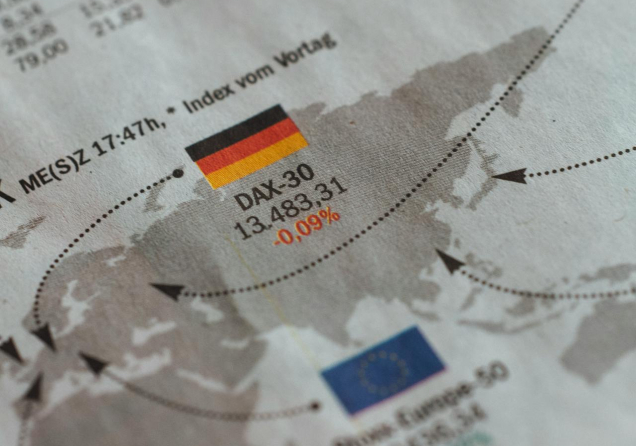Best NAS100 Brokers to Trade With
The Nasdaq 100 (NAS100) is a stock market index that tracks the performance of the 100 largest non-financial companies listed on the NASDAQ stock exchange. These companies are predominantly from the technology sector, but the index also includes firms from healthcare, consumer services, and other industries.
Consequently, the NAS100 is widely regarded as a barometer for the tech industry and innovation-driven sectors. The NAS100 is a favorite among traders seeking exposure to innovation and growth. Its volatility and liquidity make it an attractive asset for both short-term and long-term traders.
For those looking to trade the NAS100, selecting the right broker is essential. In this article, we will explore some of the best brokers for trading the NAS100, focusing on their key features.
How to Trade NAS100
Traders can trade the NAS100 index using different financial instruments, each with its own benefits and risks. The two primary ways to trade NAS100 are through ETFs (Exchange-Traded Funds) and CFDs (Contracts for Differences).
In this guide, we will cover brokers that offer NAS100 trading through ETFs and those that provide it via CFDs. It’s important to note that most brokers offer NAS100 as a CFD. Let’s explore some of the brokers that provide NAS100 trading through CFDs.
Trading the NAS100 Through CFDs
A CFD is a financial product that allows traders to speculate on the price movements of an asset without owning the underlying asset. Instead of buying individual stocks, traders can trade a CFD that tracks the performance of the entire NAS100 index. Here are some reputable brokers that offer NAS100 index CFDs:
Pepperstone
Pepperstone is a globally recognised forex and CFDs broker offering services in over 170 countries. The broker provides NAS100 CFDs under the ticker NAS100 with competitive spreads. This index has a minimum spread of 1.0 pips and an average spread of 1.2 pips on both the standard and the razor accounts.
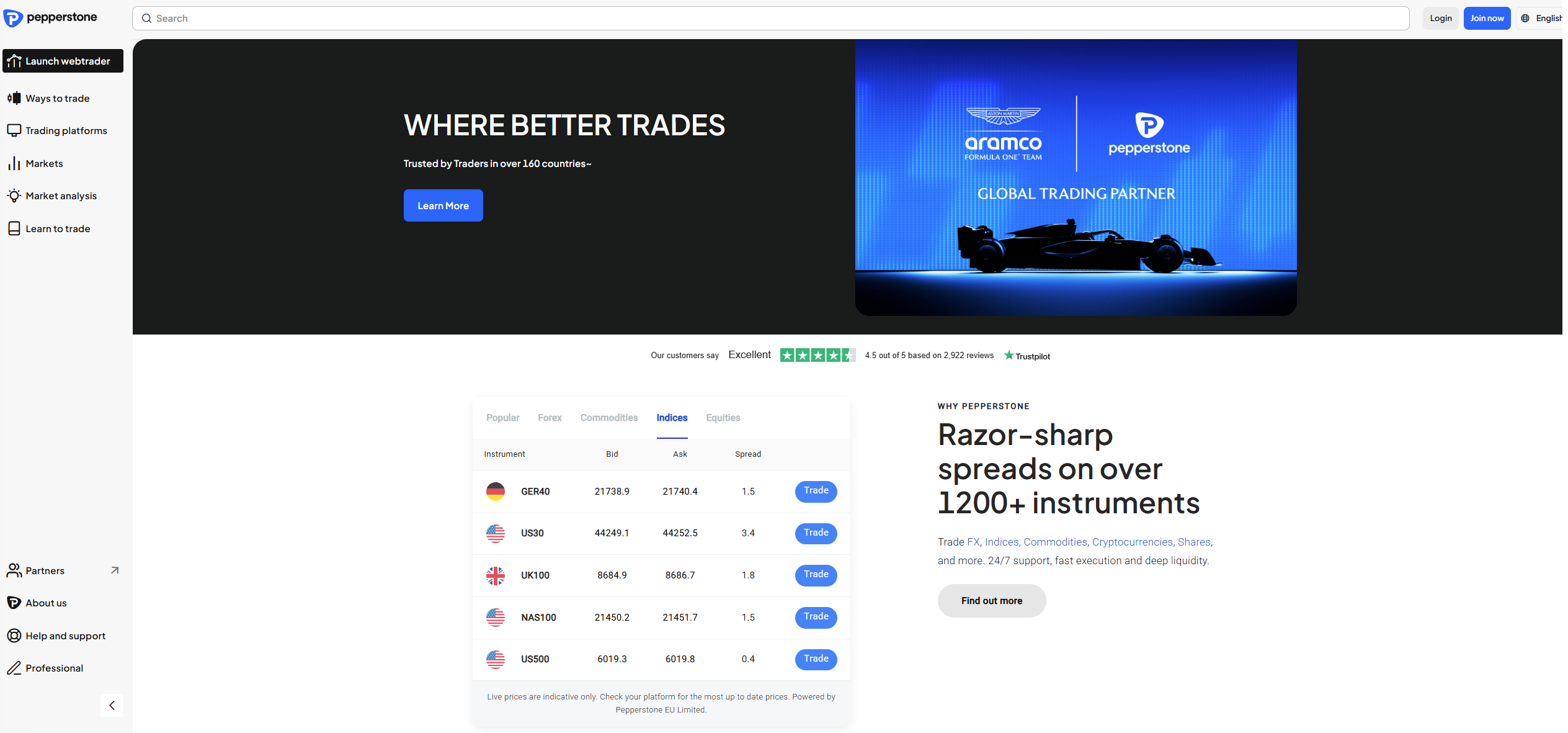 Spreads are subject to change. Check your platform for the most up to date data.
Spreads are subject to change. Check your platform for the most up to date data.
Alongside the NAS100 index, Pepperstone provides access to a ton of other market products, which are all CFDs. In total, this broker offers over 1,200 CFDs on forex, cryptocurrencies, other indices, shares, ETFs, and currency indices. To trade on Pepperstone, traders can use various trading platforms including MetaTrader 4, MetaTrader 5, cTrader, TradingView, and Pepperstone Trading Platform.
On another good note, Pepperstone operates under the regulation of various financial institutions. It has regulatory oversight from the CySEC in Cyprus, the ASIC in Australia, the FCA in the UK, the DFSA in Dubai, and the BaFin in Germany, among others.
75.3% of retail CFD accounts lose money
HFM
HFM is another top broker for trading NAS100 CFDs. This broker offers the NASDAQ 100 index both as a spot CFD and as a future CFD. The spot CFD is available under the ticker USA100 with spreads as low as 1.2 pips across four different accounts. The future CFD is on HFM under the ticker US100.F and has spreads from 3.0 pips across four accounts.
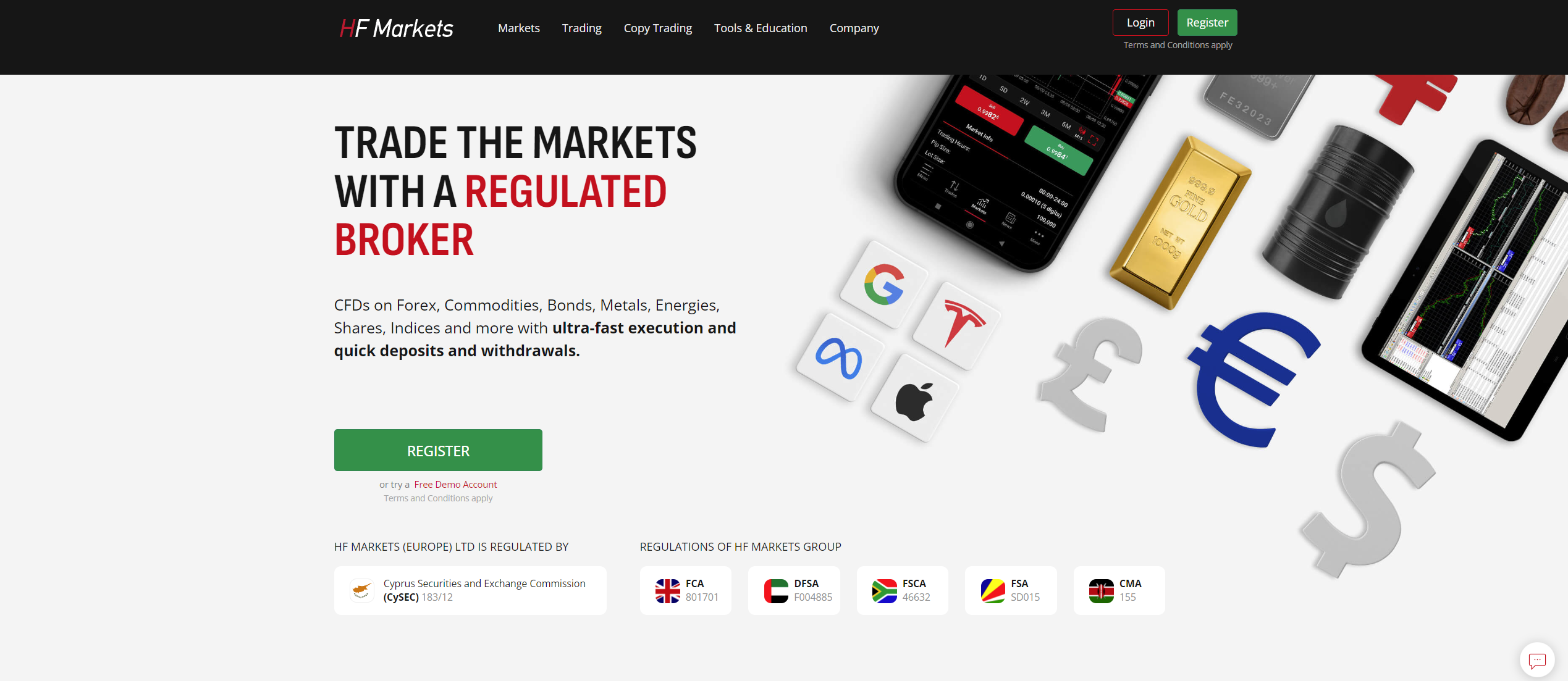 Spreads are subject to change. Check your platform for the most up to date data.
Spreads are subject to change. Check your platform for the most up to date data.
The trading platforms supported by HFM for clients to use include MetaTrader 4, MetaTrader 5, and its own HFM Platform. Aside from NAS100, HFM supports the trading of CFDs on forex, stocks, commodities, other indices, metals, bonds, ETFs, and cryptocurrencies. This allows NAS100 traders to diversify their portfolios as they see fit.
Regulation is a key strength of HFM. This broker operates under the supervision of the CySEC in Cyprus, the FCA in the UK, the DFSA in Dubai, the FSCA in South Africa, and the CMA in Kenya, among others.
68% of retail investor accounts lose money when trading CFDs with this provider.
Exness
Exness is a global multi-asset broker that also provides access to the NAS100 index through CFDs. The broker is popular for its transparency, competitive trading costs, and user-friendly platforms. NASDAQ 100 is available to trade on this broker site under the ticker, USTEC and has spreads that depend on the trading account used.
The Standard account has an average spread of 17.9 pips, while it is 12.5 pips on the Pro account, both with no commission charged. On the other hand, the Raw Spread has an average spread of 0.1 pips for the USTEC index but charges a commission of $0.625 per side per lot. Meanwhile, the Zero account has an average spread of 0.0 pips for USTEC (NAS100) plus a commission of $1.25 per side per lot.
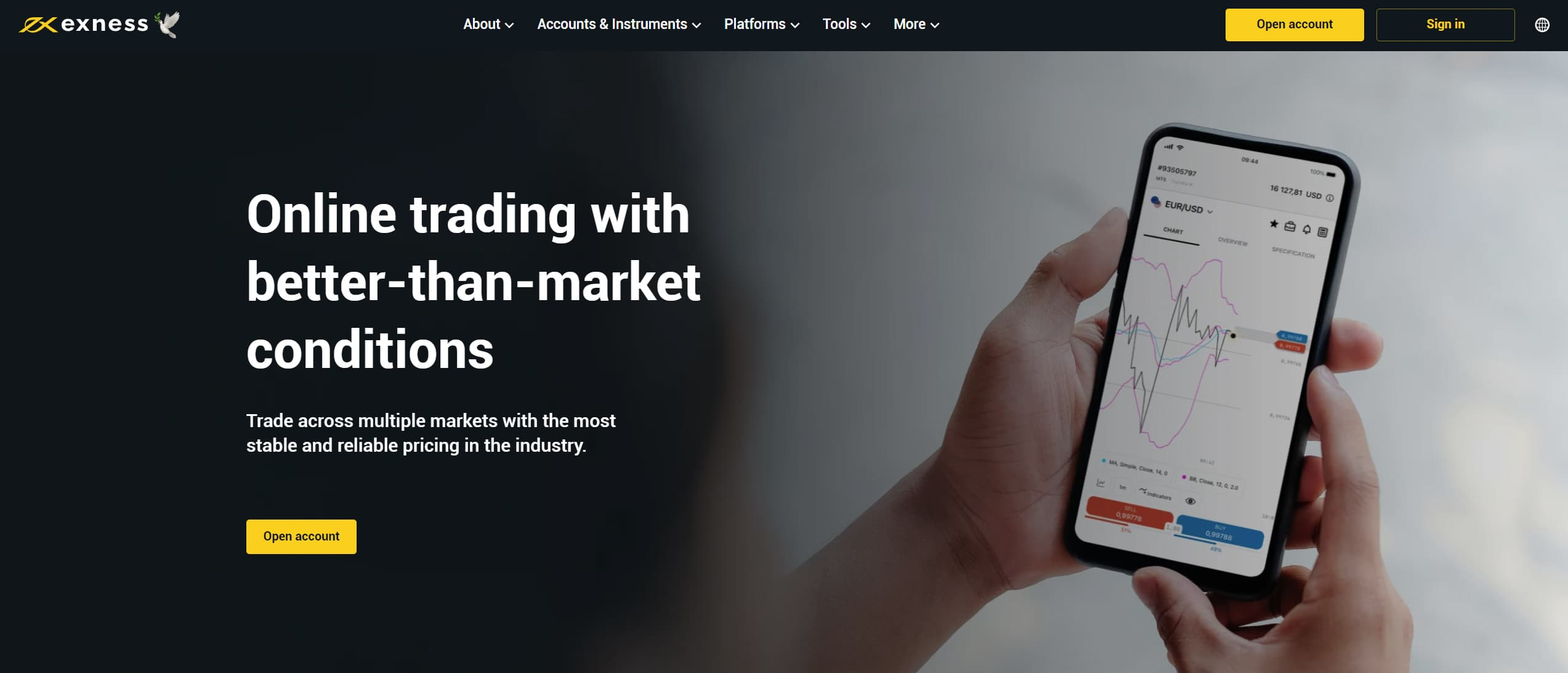 Spreads are subject to change. Check your platform for the most up to date data.
Spreads are subject to change. Check your platform for the most up to date data.
Exness supports multiple trading platforms, including MetaTrader 4, MetaTrader 5, and its proprietary Exness Terminal. Beyond NAS100, these platforms allow investors to trade a variety of other financial products on the Exness broker site. These include CFDs on forex, other indices, cryptocurrencies, stocks, and commodities.
It’s always important to consider how a broker is regulated around the world. Fortunately, Exness is a broker with regulations from various organisations around the world. Specifically, Exness has regulatory oversight by the FCA, the CySEC, the FSCA, the CMA, and the FSA in Seychelles, among others. Such regulations are part of the reason why Exness stands out as one of the best brokers for NAS100 trading.
Remember that Forex and CFDs available at Exness are leveraged products.
Their trading can result in the loss of your entire capital.
Tickmill
Tickmill is another excellent broker for trading NAS100 CFDs. The broker offers NAS100 CFDs under the ticker symbol USTEC with competitive spreads. This asset has a minimum spread of 0.8 pips and a typical spread of 1.93 pips with no commissions. Tickmill supports various trading platforms including MetaTrader 4, MetaTrader 5, and the Tickmill Trader platform. These platforms are available on desktop, web, and mobile, ensuring traders can access the NAS100 market anytime, anywhere.
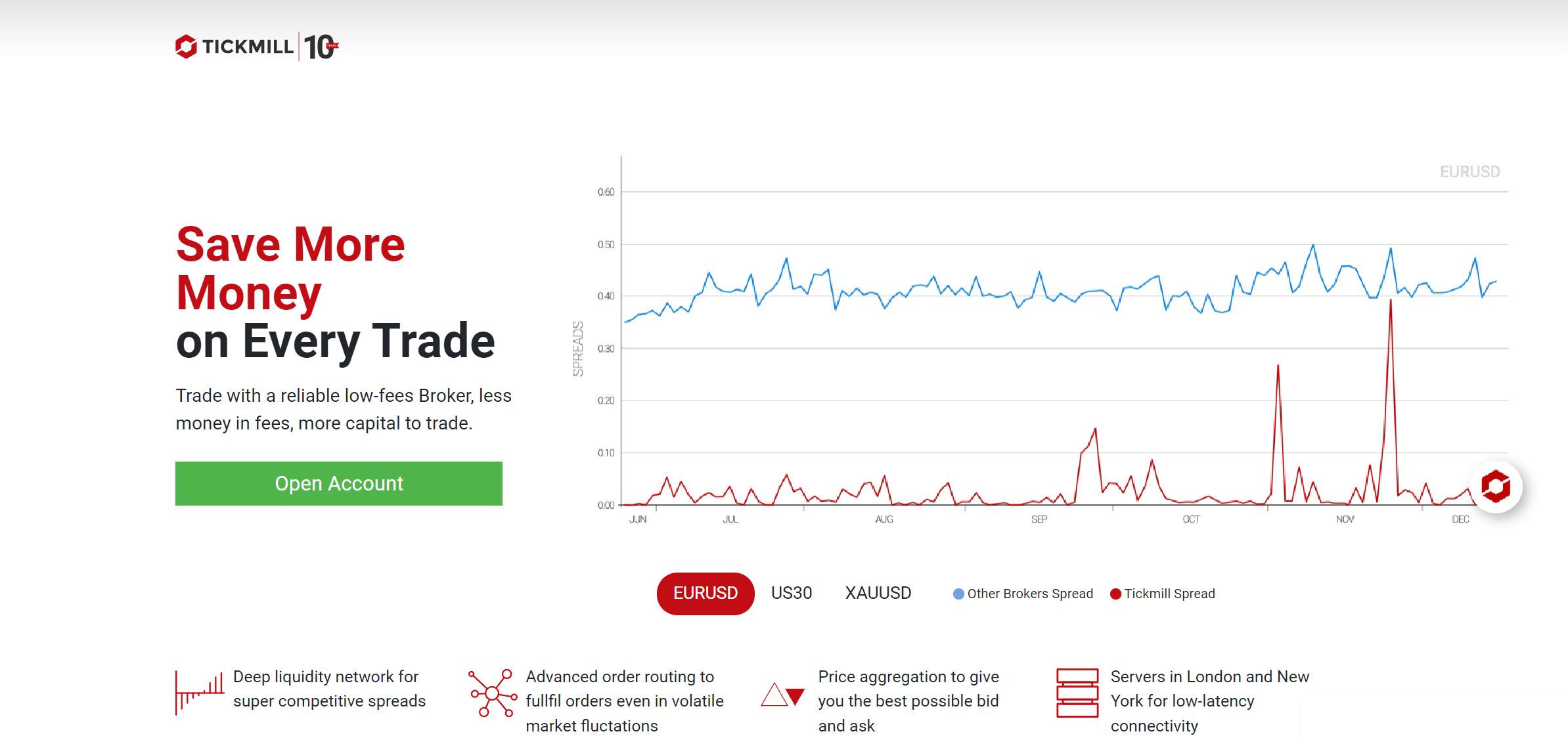 Spreads are subject to change. Check your platform for the most up to date data.
Spreads are subject to change. Check your platform for the most up to date data.
The broker also supports the trading of various other market products. These include CFDs on forex, other stock indices, metals, bonds, commodities, and cryptocurrencies. This allows for effective portfolio diversification. On another note, Tickmill holds regulatory licenses from several authorities. It operates under the regulation of the FCA, the CySEC, and the DFSA, among others. While regulations alone are not enough, holding licenses from several well-known organisations is a good sign on a broker site.
71-74% of retail investor accounts lose money when trading CFDs with this provider.
XM
XM is a well-established global broker offering NAS100 trading through CFDs. This broker offers NAS100 trading both as a cash CFD and as a futures CFD. The cash CFD is available under the ticker US100Cash with a minimum spread of 1.80 pips and an average spread of 2.24 pips. In contrast, the futures CFD is available under the ticker US100 with a minimum spread of 3.95 pips and an average spread of 4.43 pips. XM does not charge any commissions for the trading of NAS100.
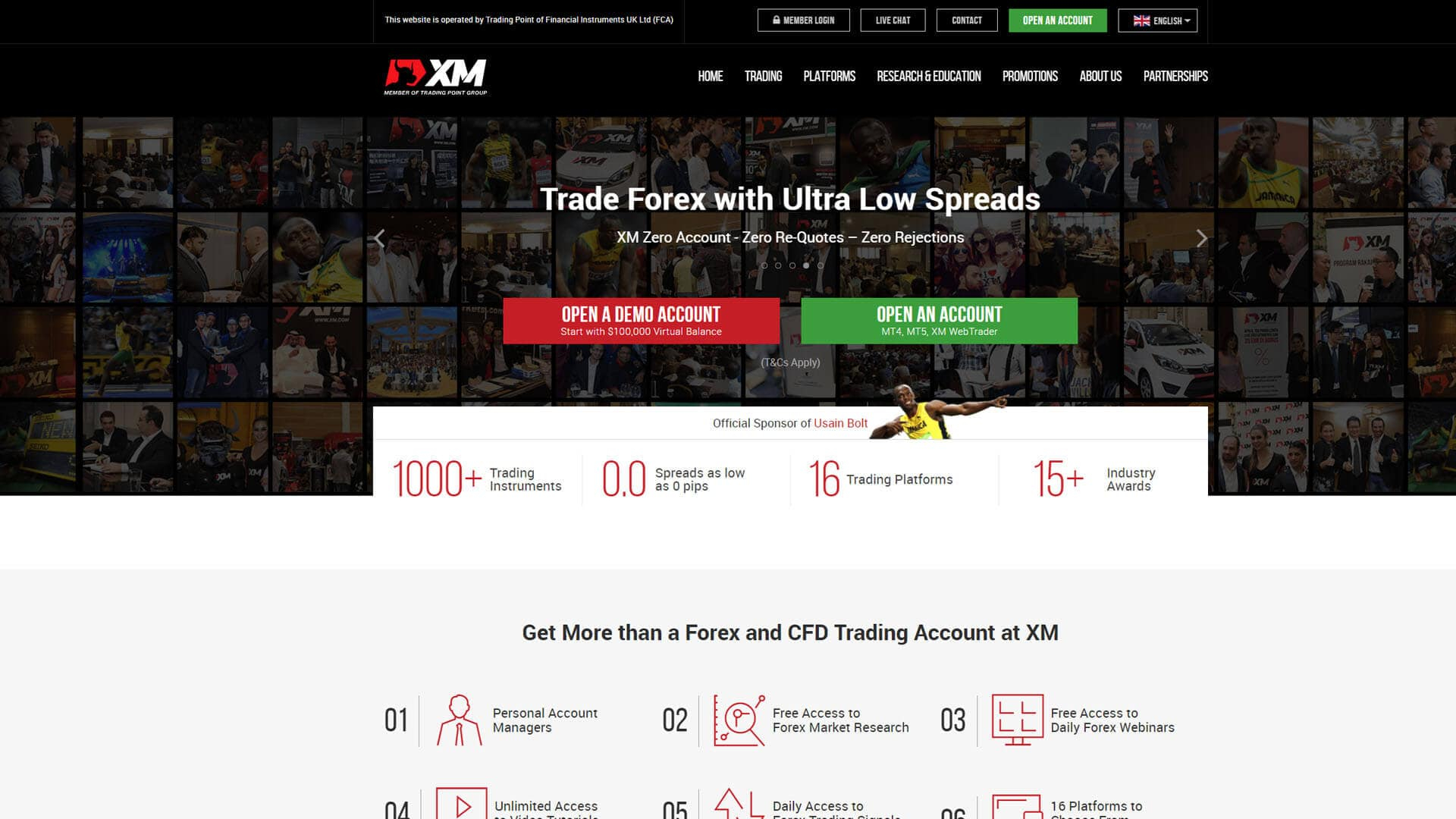 Spreads are subject to change. Check your platform for the most up to date data.
Spreads are subject to change. Check your platform for the most up to date data.
In addition to NAS100, XM offers CFDs on forex, other equity indices, cryptocurrencies, shares, commodities, stocks, metals, and energies. XM supports MetaTrader 4 and MetaTrader 5, along with the XM Trading app. These platforms are popular for their versatility and robust features. When it comes to regulation, XM operates under the supervision of multiple regulatory authorities, including CySEC, ASIC, and the FSC in Belize.
75.18% of retail investor accounts lose money when trading CFDs with this provider.
Benefits of Trading NAS100 as a CFD
- Leverage - CFDs generally offer traders high leverage, which allows traders to control larger positions with a smaller initial investment. This amplifies potential profits, but it also amplifies potential losses.
- Flexibility - Traders can go long or short, profiting from both rising and falling markets. Moreover, traders can use a variety of trading strategies on CFDs, including scalping and hedging.
- Liquidity - The NAS100 is highly liquid, ensuring tight spreads and efficient order execution.
Trading the NAS100 Through ETFs
An ETF (Exchange-Traded Fund) is an investment fund that trades on stock exchanges, similar to individual stocks. A NAS100 ETF is designed to mirror the performance of the NAS100 index by holding the same stocks in the same proportions as the index.
By investing in a NAS100 ETF, traders gain exposure to the index's performance without directly owning the individual stocks. Here are some brokers that offer NAS100 trading through ETFs:
eToro
eToro is a leading social trading platform with over 38 million users worldwide. This broker offers four different NASDAQ 100 ETFs, both as CFDs and as real underlying assets. These include the iShares NASDAQ 100 UCITS ETF managed by Blackrock, the Invesco NASDAQ Next Gen 100 ETF managed by Invesco, the Amundi NASDAQ 100 Daily 2X Leveraged UCITS managed by Amundi, and the Global X Nasdaq 100 Covered Call ETF managed by Global X Investments.
eToro does not charge commissions for trading ETFs as real underlying assets, nor does it apply its own spread fee. Instead, eToro applies a market-based spread, which varies depending on market conditions. However, for ETF CFDs, eToro charges a spread fee of 0.15%. Additionally, CFD positions in U.S.-listed stocks and ETFs priced at $3 or less will incur a fee of $0.02 per unit.
 Spreads are subject to change. Check your platform for the most up to date data.
Spreads are subject to change. Check your platform for the most up to date data.
Beyond ETFs, eToro offers a wide range of trading opportunities with over 7,000 financial instruments. This includes CFDs on forex, indices, commodities, stocks, and cryptocurrencies. Additionally, this broker offers the trading of real stocks and cryptocurrencies. The trading platform available to use is the broker’s in-house built platform, eToro.
Further, eToro boasts a robust regulatory framework. The broker operates under the regulation of several organisations including the FCA, the CySEC, the ASIC, and the FSA in Seychelles, among others.
61% of retail investor accounts lose money when trading CFDs with this provider.
XTB
XTB is another well-known global broker that allows traders to trade NASDAQ 100 as an ETF. This broker offers ETF trading as both real underlying assets and as ETF CFDs. There are various NAS100 ETFs including Amundi NASDAQ-100 UCITS managed by Amundi, AXA IM Nasdaq 100 UCITS managed by Axa Investment Managers, iShares NASDAQ 100 UCITS ETF managed by Blackrock, Invesco EQQQ NASDAQ-100 UCITS managed by Invesco, Amundi NASDAQ 100 UCITS managed by Amundi, Global X Nasdaq 100 Covered Call ETF managed by Global X Investments, and Xtrackers NASDAQ 100 UCITS managed by Xtrackers.
The Global X Nasdaq 100 Covered Call ETF is also available as a CFD alongside the Lyxor Nasdaq-100 UCITS ETF CFD. Apart from NAS100, the broker also provides access to the S&P 500 index and many other indices. Trading real stocks and ETFs is commission-free on XTB for monthly turnovers up to $100,000. Above that, a 0.2% commission applies with a minimum commission of $10. When trading ETF CFDs, there is no commission charged and the spreads involved are floating depending on market conditions.
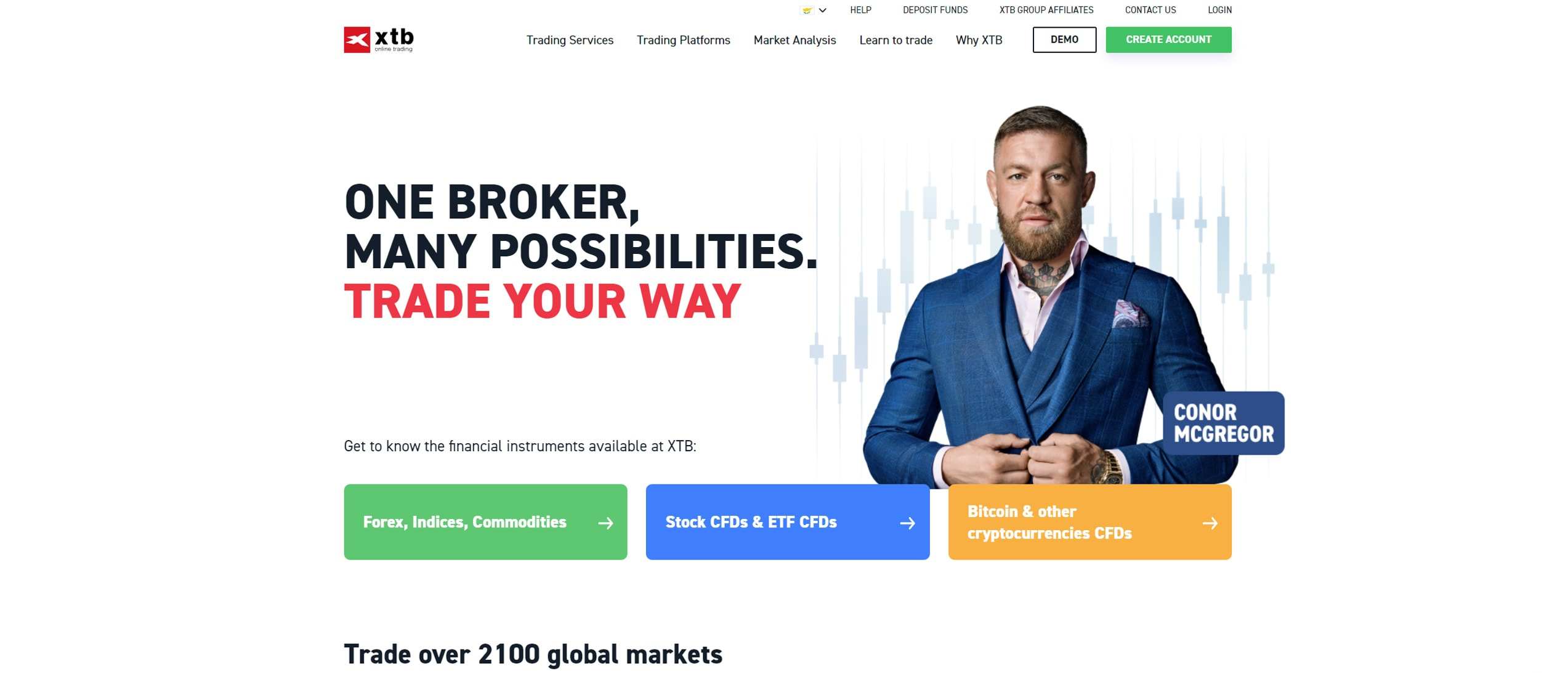 Spreads are subject to change. Check your platform for the most up to date data.
Spreads are subject to change. Check your platform for the most up to date data.
Further, there is only one trading platform available on XTB, its proprietary xStation 5 platform. This platform allows for the trading of other market products alongside ETFs. Traders have access to CFDs on forex, indices, stocks, commodities, ETFs, and cryptocurrencies. The broker also allows people to trade real stocks and other ETFs.
When it comes to regulations, this broker operates under a multi-regulatory framework. It is supervised by several institutions including the FCA, the CySEC, the FSC, and the KNF in Poland.
75-78% of retail investor accounts lose money when trading CFDs with this provider.
Interactive Brokers
Interactive Brokers is one of the oldest brokers in operation today. This broker offers several NAS100 ETFs from various regions and exchanges. Some of the NASDAQ 100 ETFs available include Fubon NASDAQ 100 Index ETF managed by Fubon Asset Management, CTBC Nasdaq 100 ETF managed by CTBC Investment, MAXIS NASDAQ 100 ETF managed by Mitsubishi UFJ Asset Management, and iShares NASDAQ 100 UCITS ETF managed by Blackrock, among others.
For ETF trading, Interactive Brokers charges a commission of 0.05%, with a minimum charge of $1 and a maximum of 1% of the trade value. Traders can access the market through platforms such as Trader Workstation and the IBKR Platform. Additionally, the broker provides access to a wide range of global markets, including forex currency pairs, stocks, options, futures, bonds, and cryptocurrencies.
Spreads and commissions are subject to change. Check your platform for the most up to date data.
Lastly, this broker is highly regulated, holding licenses across multiple jurisdictions. It has authorisation from the SEC and CFTC in the US, the FCA, the ASIC, and the CIRO in Canada. Additionally, it is a publicly listed company on NASDAQ under the ticker symbol IBKR, which ensures a strong level of oversight and transparency.
Benefits of Trading NAS100 as an ETF
- Asset Ownership - Investing in an ETF means owning a portion of the fund, which holds the underlying assets. This provides traders with indirect ownership of ETF assets.
- Diversification - By investing in a NAS100 ETF, traders gain exposure to 100 high-growth companies in a single trade.
- Transparency - ETFs disclose their holdings daily, so investors know exactly what assets they own.
It’s worth noting that ETFs typically offer no leverage or very limited. This can greatly reduce the risks associated with leveraged trading, but it also lowers the potential profits of leveraged positions. Brokers that provide NAS100 indices as ETF CFDs effectively merge the advantages of both ETFs and CFDs.
Final Comments
The NAS100 index is a popular choice for traders and investors seeking exposure to the technology sector and other high-growth industries. However, selecting the right broker to trade NAS100 is crucial for a seamless trading experience.
The brokers listed in this article are among the best in the industry, offering competitive trading conditions, robust platforms, and access to other global market products. Ultimately, the best broker for NAS100 trading depends on your individual trading style, budget, and investment goals. Always conduct thorough research and consider your risk tolerance before making any investment decisions.
Top-Tier Trusted Brokers
The table below contains links to 3rd party websites of our top partners from whom we receive compensation at no additional cost to you.

























